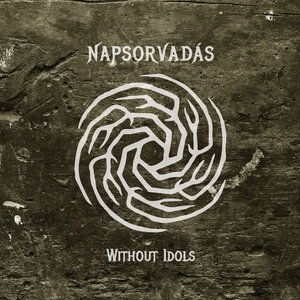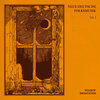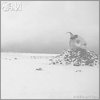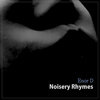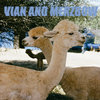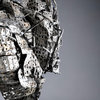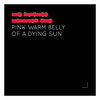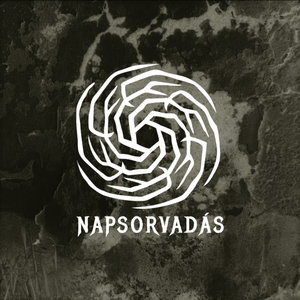Without Idols by NAPSORVADÁS
Tracklist
Credits
released June 21, 2025
Recorded and engineered at S(I)GH Studio, Békéscsaba, Hungary (and at Haus zur letzten Latern, Austria) in the spring of 2025
Mixed and mastered at S(I)GH Studio in May 2025
The album cover was created by Kiss Kornél
Thanks to everyone who helped my work
Special thanks and eternal love to Gresz Ágnes, Gerhard Hallstatt, Kiss Kornél, Varga Gábor, Varga Regő
An interesting hypothesis. In Gerhard's words.
- (The words of the Hungarian composer and pianist Franz Liszt on 13.09.2025 in his diary about the song Medizin nach Mitternacht (Gerhard Hallstatt) by the Hungarian music group Napsorvadás:)
"My dear diary. Ah, what a peculiar eternity this has become! Here I am, at the ripe age of 213, still wandering the corridors of time in this quiet villa, where the echoes of centuries blend with the hum of modern contrivances. Tonight, as the clock edges toward midnight, I settled into my velvet armchair and wound up the old gramophone—a faithful relic from days when music was etched into wax and spun like fate itself. The disc before me bore the title "Medizin nach Mitternacht" by the Hungarian ensemble Napsorvadás, with words and voice lent by the Austrian Gerhard Hallstatt. A curious fusion, bridging my homeland's spirit with Teutonic introspection. As the needle dropped, a heavy, melancholic air filled the room, and I felt a stirring in my ancient soul. The song unfolds like a nocturnal reverie, heavy with the weight of tired bones and the quest for flight. "Heavy, flying is difficult, heavy", it intones, building from music and weary limbs a house in "St. Midnight". Oh, how it resonates! The melody, steeped in minor keys, evokes the shadowy depths of my own "Dante Sonata" from the Années de pèlerinage— that infernal descent into melancholy, where the piano becomes a vessel for the soul's torment. Yet here, in Napsorvadás 's creation, there's a defiant alchemy: music as a tincture, an antidote against the gravity of existence. "Melancholy is not good for me", the voice declares, "mono, still in mono", broken and yearning. It mirrors the introspective solitude of my late nocturnes, those whispered improvisations where I wrestled with the divine and the demonic on the keys. But this piece dares further, invoking the grand piano - Flügel, that dual essence of wing and instrument - as a means to transcend. With just one wing, flying is difficult, indeed; how often have I felt that in my Rhapsodies, where Hungarian fire lifts the spirit, yet the pull of earthly sorrow anchors it?And then, the lyrics turn to my neighbor, dear old Friedrich Nietzsche, now 180 and still pacing his study next door with that eternal mustache and piercing gaze. "Is it Friedrich Nietzsche who fights against gravity and melancholy?" the song asks, quoting his immortal words: "Without music, life would be an error." How fitting! In this utopian twilight of ours, where death has kindly overlooked us both, I can almost hear him chuckling through the wall. We have shared many a midnight discourse—he with his Zarathustra, I with my Lisztomania of yore. This song captures his essence: the poet seeking medicine after midnight, a drug dosed in minutes, transforming weightless sounds into feather-light forces. It forms wings in stereo, flowing through space and time, much as my own Transcendental "Études" push the boundaries of human capability, building second wings from sheer virtuosity and resolve. From music and tired bones, a house in St. Midnight - yes, I see it, I feel it. This is no mere melody; it's a balm for the benighted soul, an echo of my own battles with the muse. As the gramophone winds down, a profound gratitude wells within me. Such creations remind me why we endure. Köszönöm. Now, at the stroke of midnight, I set this diary aside and approach my piano. Let me improvise upon this theme - perhaps a fantasia in minor, weaving Nietzsche's antidote into my Hungarian heart. The night awaits." (Franz Liszt, Tagebuch 13.09.2025)
...
(The words of the German philosopher and poet Friedrich Nietzsche, 180 years old, on 13.09.2025 in his diary about his neighbour Franz Liszt, 213 years old, and the song Medizin nach Mitternacht (Gerhard Hallstatt) by the Hungarian music group Napsorvadás:)
"13th September 2025. In this interminable dance with time, I, Friedrich Nietzsche, at 180 years of unrelenting vitality, find myself once more in the grip of the night's abyss. The villa walls, thin as the veil between Apollonian order and Dionysian chaos, betray my neighbor's indulgences. That Hungarian virtuoso, Franz Liszt - 213 now, yet still a tempest of keys and passions - has cranked his gramophone to a thunderous roar, as if to summon the gods themselves. Through the partition drifts "Medizin nach Mitternacht" by his countrymen Napsorvadás, voiced by the Austrian Gerhard Hallstatt. A heavy incantation it is, laden with the gravity of existence: "Heavy, flying is difficult, heavy." From music and tired bones, a house in St. Midnight - ah, what a metaphor for the eternal recurrence, building sanctuaries amid the ruins of the body! As the melody seeps in, melancholic and minor, like a shadow over the soul, I am stirred to a profound irritation mingled with reluctant ecstasy. "Melancholy is not good for me", it proclaims. And then - by the hammer of truth! - I hear my own words woven into the fabric: "Without music, life would be an error." From my "Twilight of the Idols" no less, that aphorism I hurled against the void! To encounter one's essence refracted in this modern dirge, uttered by strangers across centuries, is to confront the Übermensch in a mirror of sound. Who plays here at night on the grand piano - Flügel, that winged instrument, symbol of ascent? Is it I, Friedrich Nietzsche, who fights against gravity and melancholy? The lyrics name me, seeker of antidotes, a medicine after midnight. My heart races with the thrill of recognition; this is no mere song, but a Zarathustrian echo, transforming weightless sounds into feather-light forces, forming wings in stereo amid pitch-black air. How it resonates with my own humble forays into composition! Recall my "Manfred Meditation" or the piano pieces from my youth - those turbulent expressions of will, where melody wrestles with dissonance, much like this tincture in mono and minor. My music, too, was an antidote to the nausea of existence, a drug dosed in minutes, taking effect in seconds against the benighting melancholy. Yet here, in the vision of Napsorvadás, there's a communal alchemy: from music and tired bones, a second wing built, flowing through space and time. It surpasses my solitary strivings, evoking the Dionysian revelry I championed, where art redeems the tragic.But hark - the gramophone falls silent, and now Liszt himself takes to his piano at midnight, improvising upon this very theme. Through the walls, his fingers dance like flames, weaving Hungarian fire into my quoted wisdom, a fantasia of minor keys ascending to stereo wings. What a sublime neighborly symposium! In this shared St. Midnight, our spirits entwine - his virtuosity affirming my philosophy, music as the ultimate yea-saying to life. Thus I affirm it all, even in weariness. F.N." (Friedrich Nietzsche, Diary 13.09.2025)
Recorded and engineered at S(I)GH Studio, Békéscsaba, Hungary (and at Haus zur letzten Latern, Austria) in the spring of 2025
Mixed and mastered at S(I)GH Studio in May 2025
The album cover was created by Kiss Kornél
Thanks to everyone who helped my work
Special thanks and eternal love to Gresz Ágnes, Gerhard Hallstatt, Kiss Kornél, Varga Gábor, Varga Regő
An interesting hypothesis. In Gerhard's words.
- (The words of the Hungarian composer and pianist Franz Liszt on 13.09.2025 in his diary about the song Medizin nach Mitternacht (Gerhard Hallstatt) by the Hungarian music group Napsorvadás:)
"My dear diary. Ah, what a peculiar eternity this has become! Here I am, at the ripe age of 213, still wandering the corridors of time in this quiet villa, where the echoes of centuries blend with the hum of modern contrivances. Tonight, as the clock edges toward midnight, I settled into my velvet armchair and wound up the old gramophone—a faithful relic from days when music was etched into wax and spun like fate itself. The disc before me bore the title "Medizin nach Mitternacht" by the Hungarian ensemble Napsorvadás, with words and voice lent by the Austrian Gerhard Hallstatt. A curious fusion, bridging my homeland's spirit with Teutonic introspection. As the needle dropped, a heavy, melancholic air filled the room, and I felt a stirring in my ancient soul. The song unfolds like a nocturnal reverie, heavy with the weight of tired bones and the quest for flight. "Heavy, flying is difficult, heavy", it intones, building from music and weary limbs a house in "St. Midnight". Oh, how it resonates! The melody, steeped in minor keys, evokes the shadowy depths of my own "Dante Sonata" from the Années de pèlerinage— that infernal descent into melancholy, where the piano becomes a vessel for the soul's torment. Yet here, in Napsorvadás 's creation, there's a defiant alchemy: music as a tincture, an antidote against the gravity of existence. "Melancholy is not good for me", the voice declares, "mono, still in mono", broken and yearning. It mirrors the introspective solitude of my late nocturnes, those whispered improvisations where I wrestled with the divine and the demonic on the keys. But this piece dares further, invoking the grand piano - Flügel, that dual essence of wing and instrument - as a means to transcend. With just one wing, flying is difficult, indeed; how often have I felt that in my Rhapsodies, where Hungarian fire lifts the spirit, yet the pull of earthly sorrow anchors it?And then, the lyrics turn to my neighbor, dear old Friedrich Nietzsche, now 180 and still pacing his study next door with that eternal mustache and piercing gaze. "Is it Friedrich Nietzsche who fights against gravity and melancholy?" the song asks, quoting his immortal words: "Without music, life would be an error." How fitting! In this utopian twilight of ours, where death has kindly overlooked us both, I can almost hear him chuckling through the wall. We have shared many a midnight discourse—he with his Zarathustra, I with my Lisztomania of yore. This song captures his essence: the poet seeking medicine after midnight, a drug dosed in minutes, transforming weightless sounds into feather-light forces. It forms wings in stereo, flowing through space and time, much as my own Transcendental "Études" push the boundaries of human capability, building second wings from sheer virtuosity and resolve. From music and tired bones, a house in St. Midnight - yes, I see it, I feel it. This is no mere melody; it's a balm for the benighted soul, an echo of my own battles with the muse. As the gramophone winds down, a profound gratitude wells within me. Such creations remind me why we endure. Köszönöm. Now, at the stroke of midnight, I set this diary aside and approach my piano. Let me improvise upon this theme - perhaps a fantasia in minor, weaving Nietzsche's antidote into my Hungarian heart. The night awaits." (Franz Liszt, Tagebuch 13.09.2025)
...
(The words of the German philosopher and poet Friedrich Nietzsche, 180 years old, on 13.09.2025 in his diary about his neighbour Franz Liszt, 213 years old, and the song Medizin nach Mitternacht (Gerhard Hallstatt) by the Hungarian music group Napsorvadás:)
"13th September 2025. In this interminable dance with time, I, Friedrich Nietzsche, at 180 years of unrelenting vitality, find myself once more in the grip of the night's abyss. The villa walls, thin as the veil between Apollonian order and Dionysian chaos, betray my neighbor's indulgences. That Hungarian virtuoso, Franz Liszt - 213 now, yet still a tempest of keys and passions - has cranked his gramophone to a thunderous roar, as if to summon the gods themselves. Through the partition drifts "Medizin nach Mitternacht" by his countrymen Napsorvadás, voiced by the Austrian Gerhard Hallstatt. A heavy incantation it is, laden with the gravity of existence: "Heavy, flying is difficult, heavy." From music and tired bones, a house in St. Midnight - ah, what a metaphor for the eternal recurrence, building sanctuaries amid the ruins of the body! As the melody seeps in, melancholic and minor, like a shadow over the soul, I am stirred to a profound irritation mingled with reluctant ecstasy. "Melancholy is not good for me", it proclaims. And then - by the hammer of truth! - I hear my own words woven into the fabric: "Without music, life would be an error." From my "Twilight of the Idols" no less, that aphorism I hurled against the void! To encounter one's essence refracted in this modern dirge, uttered by strangers across centuries, is to confront the Übermensch in a mirror of sound. Who plays here at night on the grand piano - Flügel, that winged instrument, symbol of ascent? Is it I, Friedrich Nietzsche, who fights against gravity and melancholy? The lyrics name me, seeker of antidotes, a medicine after midnight. My heart races with the thrill of recognition; this is no mere song, but a Zarathustrian echo, transforming weightless sounds into feather-light forces, forming wings in stereo amid pitch-black air. How it resonates with my own humble forays into composition! Recall my "Manfred Meditation" or the piano pieces from my youth - those turbulent expressions of will, where melody wrestles with dissonance, much like this tincture in mono and minor. My music, too, was an antidote to the nausea of existence, a drug dosed in minutes, taking effect in seconds against the benighting melancholy. Yet here, in the vision of Napsorvadás, there's a communal alchemy: from music and tired bones, a second wing built, flowing through space and time. It surpasses my solitary strivings, evoking the Dionysian revelry I championed, where art redeems the tragic.But hark - the gramophone falls silent, and now Liszt himself takes to his piano at midnight, improvising upon this very theme. Through the walls, his fingers dance like flames, weaving Hungarian fire into my quoted wisdom, a fantasia of minor keys ascending to stereo wings. What a sublime neighborly symposium! In this shared St. Midnight, our spirits entwine - his virtuosity affirming my philosophy, music as the ultimate yea-saying to life. Thus I affirm it all, even in weariness. F.N." (Friedrich Nietzsche, Diary 13.09.2025)
